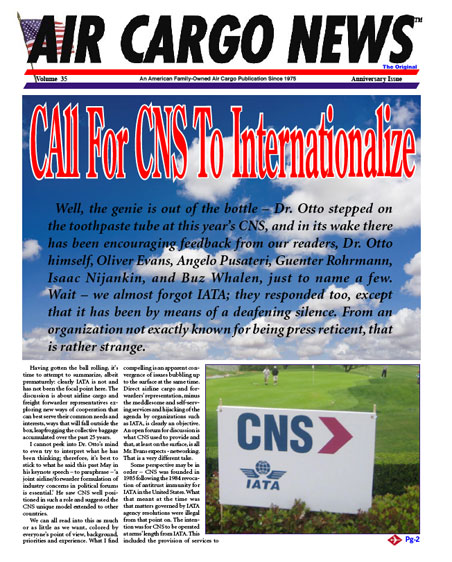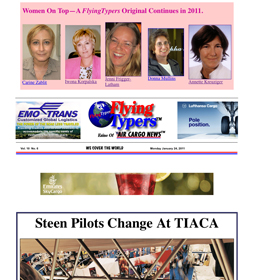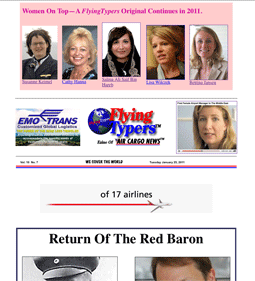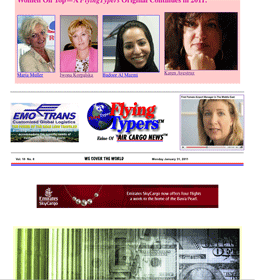Delta Women Power Cargo
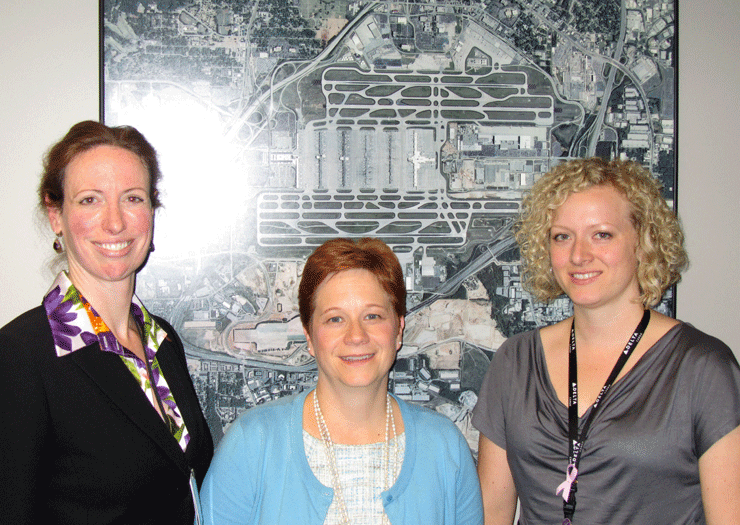
There
is nothing we enjoy more here at FlyingTypers than our series on Women
in Air Cargo, which is our pioneering effort to shine a light on a demographic
of the industry previously left in the dark. We were the first to do
it, and of that we are extraordinarily proud.
This issue puts the spotlight on the women
of Delta; while we could not interview all of the women of Delta, we
feel incredibly honored to have been allowed some time with three of
them. They are (left to right) Elizabeth Shaver, International Compliance
Manager; Marie Buetlow, Manager Strategic Partners; and Rachel Steitz,
Manager Cargo Safety. Each woman holds a very special and important
place within the cargo world from the ground up, and each has a unique
story to share.
We sat down with these three women and
learned that Marie was born into a world of air cargo, having followed
in the path laid out before her with almost three decades of the airline
industry running a thread through her family. We learned that not all
people are born with their hearts in cargo; Rachel had her eyes fixed
on a piloting license before 9/11 changed the landscape of our industry,
and Elizabeth was on track to work in the FAA when a move to Atlanta
changed everything.
The tie that binds all these women, and
perhaps all of us, is the notion that once one has fallen into the world
of air cargo, from whichever path one started on, it is difficult to
imagine oneself in any other world. If you’re in it, you certainly
love it.
Please enjoy this current issue of Women
in Air Cargo, and if you know of any women who deserve to have their
story heard, do not hesitate to let us know!
FT: How long have
you been in the cargo business?
Marie: I’ve
been in the cargo business for 10 years, and the airline industry for
27 years. But my family has been in the business since 1951. I’ve
been with Delta Cargo for 2 1/2 years; before that I spent 25 years
with another carrier based in Chicago.
I was educated as a teacher, so I’ve
done a number of training projects. I started on the reservations side
then moved to operations.
I was out east in the early 2000s and
I was managing freight operations and you get extra manpower for managing
freight, so that was a good thing. I took an interest in it and there
was an opening on the sales side in the cargo division, so I went over
there I’ve been there ever since. I have no desire to leave. It
was a good fit because I knew ramp functionality; I managed and worked
the ramp, and this went one step further in learning management of the
warehouse and working with customers.
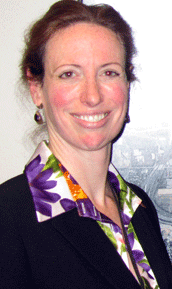 Elizabeth:
I’ve been in air cargo for 5 years, and in the aviation industry
for 5 years and 4 months. I started out as a gate agent at a ground
handling company in Atlanta doing passenger flight for a European carrier
– I did that for about 4 months, then I was hired by the Sky Team
Cargo U.S. sales joint venture, which handled all the outbound capacity
for Korean, Air France and Delta. I worked there for a couple of years,
then I was hired by Delta Cargo to start the Cargo Flight Controller
Group. I’ve been with Delta for 3 years and 4 months. Elizabeth:
I’ve been in air cargo for 5 years, and in the aviation industry
for 5 years and 4 months. I started out as a gate agent at a ground
handling company in Atlanta doing passenger flight for a European carrier
– I did that for about 4 months, then I was hired by the Sky Team
Cargo U.S. sales joint venture, which handled all the outbound capacity
for Korean, Air France and Delta. I worked there for a couple of years,
then I was hired by Delta Cargo to start the Cargo Flight Controller
Group. I’ve been with Delta for 3 years and 4 months.
Being in cargo was a fluke. When I was
changing careers, I went and got my dispatcher’s license and planned
on being an aircraft dispatcher and working my way up to be involved
in FAA regulatory affairs on the flight operation side of the business.
But when I moved to Atlanta, at the time when Delta was on the verge
of declaring bankruptcy, I sort of fell into a cargo job. And now I
wouldn’t want to work anywhere else. It’s a great place
to touch all different parts of the company and see what’s going
on.
Rachel: I’ve
been in cargo for 6 years. I’m Manager of Cargo Safety, which
entails reducing on the job injuries, improving safety, reducing the
damage to equipment and facilities, and emergency response on behalf
of the cargo division, so if we were to have an aircraft incident, we
would make sure the preparatory and planning processes are in place.
I’ve been in that role for the last two years; prior to that I
was in a compliance role in cargo, and prior to that, in ops management.
The cargo business was a fluke for me
as well. I started on the passenger side as a ramp agent in college,
then I did my flight training, but after 9/11 the industry changed.
When an opening as ops manager in cargo came up, I took it. It was a
great opportunity and I’m learning something new all the time.
FT: In your job function, what has surprised you?
Elizabeth:
We’re never surprised! (laughs)
Rachel: No,
we’re prepared for everything! (laughs)
FT: Ok, well, are
women a minority in terms of total employment? Is there any gender pressure
to be better than the men? We’d like an idea of who you are as
women in the jobs you’re doing.
Elizabeth:
There are plenty of times where I will be the only woman in a meeting.
But I see a lot of women.
Rachel: It’s sort of random though; sometimes there are meetings
with a lot of women, sometimes you’re the only woman in the room.
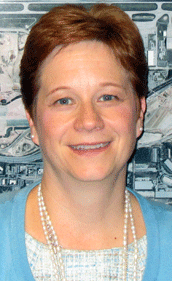 Marie:
I think I see it from the perspective of dealing with the
forwarder side. I do global sales calls and call a lot of forwarders.
Traditionally, I spend a lot of my time with men, but I don’t
think about it or notice it – I grew up with 9 boy cousins! When
I sit at a table, I think about the business I’m doing and I think
about things we’re learning and sharing with each other. Marie:
I think I see it from the perspective of dealing with the
forwarder side. I do global sales calls and call a lot of forwarders.
Traditionally, I spend a lot of my time with men, but I don’t
think about it or notice it – I grew up with 9 boy cousins! When
I sit at a table, I think about the business I’m doing and I think
about things we’re learning and sharing with each other.
I don’t know if it’s because
in the era I grew up in, it was more acceptable for women to get a job.
When my mother started in the industry in 1951, there were limited paths
for women and women were boxed in – a baby meant your career was
over, even if you worked in the reservations office or the airport,
that was the end.
I started in the industry in 1982, and
while it was a heavily male industry, each year there are more female
pilots, more women in cargo – the fact is that more women go to
school now and there are more people working today than ever before.
I don’t think about it much but maybe I should because I consider
myself blessed by the people who laid the groundwork before me; I can
walk into a room and I don’t have to think about the fact that
I’m the only woman at the table.
FT: And business is,
after all, just business. I guess everyone is more interested in the
business than in someone’s gender.
Marie: I
think if you know your job and you speak to the things that you need
to do, no one thinks, ‘oh I have to work with a woman, what’s
she doing talking about these things?’
FT: Would you recommend
this industry to family or another generation of women? Why?
Elizabeth:
When it comes to the airline industry, you either love it or hate it,
woman or man; you’re either drawn to it or not so much. Being
a woman is a non-issue. I have absolutely no reservations recommending
it to another woman.
Marie: It’s
a lifestyle, yes; you have to love it.
Rachel:
I feel the same way. I don’t think about being a woman when I’m
doing business.
FT: Of all the things you have done, of what are
you most proud?
Marie: One
of my projects was The Call Center for Frequent Flyer Programs and we
did all the training for that. That’s one of my “claims
to fame.”
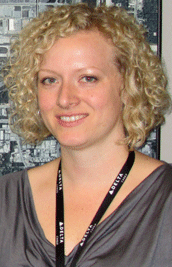 Rachel:
We recently started a safety representative program. Instead of our
frontline agents giving all the information to station leaders, we have
developed a team of safety representatives at every station, who can
provide information about safety policy, the culture of safety, how
to improve safety, and what tools are necessary to promote safety. Rachel:
We recently started a safety representative program. Instead of our
frontline agents giving all the information to station leaders, we have
developed a team of safety representatives at every station, who can
provide information about safety policy, the culture of safety, how
to improve safety, and what tools are necessary to promote safety.
We started out with training, CPR, policy
tools, and used those things to provide monthly support. We have a call
in and any issues encountered are addressed in call, along with new
topics. There we can discuss changes and get everyone involved. The
most important thing has been to give the local stations ownership of
safety at their level. They can change the culture – you can always
have a manager telling you what to do, that’s easy, but when you
have people within a corporation who are driving changes, there’s
sustainability.
We’ve had very positive feedback
about the changes seen when they go back to their stations. People get
so much information via email and the email, so it’s important
for us to bring them in and give them one-on-one time.
FT: Rachel, do you
have any goals in terms of safety?
Rachel:
It’s really about reducing injuries, the decision to do something
the right way versus taking a shortcut. We use data from hazard reports
and injury reports to determine what is not safe, then use frontline
employees to determine best practices.
I try to get out as often as possible,
but really the safety reps help in identifying best practices. They
have to be part of that process; otherwise it’s not realistic.
Elizabeth:
On one side I’m responsible for compliance, on the other side
I’m responsible for this group in the Flight Control Center. It’s
a group that I was hired to start when I first came to Delta Cargo.
That is the biggest impact I’ve had in the company – putting
together this group.
When we started we had an idea of what
we wanted it to be. It was part of revenue management at that time;
their job was capacity management and revenue maximization, but to do
that you have to have a very good relationship with sales and you have
to have a very good relationship with operations. Then we branched out
and moved into the FCC, because we realized that when you’re doing
cargo in a passenger carrier, you’re very dependent on a lot of
other factors – passenger counts, passenger bags—all those
things impact cargo capacity, because when you’re coming off a
plane, the first thing to come off is the cargo, not the passengers
or the bags. So just to be hooked into
everything going on is great because it allows us to anticipate problems
and find ways around them and offer the best solutions to what might
otherwise be an ugly situation.
FT: Elizabeth, are
there advantages to being a woman in terms of advancing cooperation?
Elizabeth:
I think it’s certainly somewhat gender-based, but it’s also
personality based. It’s perhaps easier for women to do that, but
there are definitely men who can do it too. What I always say to my
team is: “You’re new and people don’t know what you
do. They’re threatened by you, so put yourself in their shoes,
look at yourself as they look at you and try to address their concerns.”
I think we’ve been good at seeing things from the other person’s
side.
FT: How important
is the spirit of Delta? Is that a real thing? What does the spirit of
Delta mean to you?
Elizabeth:
It is definitely a real thing, absolutely. It’s hard to put your
finger on it. There’s definitely a sense of pride. You don’t
want to do anything that reflects badly on the name.
Rachel:
It’s definitely real.
Marie: It’s
like an aura; it’s something you can’t touch or draw a picture
of, but you feel it and know it. Part of it is the way a company treats
its employees. Delta is very supportive of its employees; we get a lot
of opportunities and chances to develop ourselves, whether through the
computer learning network or access to classes.
In return you want to give back as much. You
don’t want to reflect poorly on the name and you want to present
it in the light that you feel when you are there. From Richard Anderson
on down, I feel anybody would do anything to help a fellow employee
or customer.
FT: What would you like to change?
Marie: I
would like expandable airplanes! (Everyone laughs). When I came to Delta,
we were segueing out of the U.S. cargo sales joint venture. We’d
gone back to where Air France was representing itself and we were representing
ourselves from a sales side. At that time the name was not always as
recognizable and we did a lot to publicize Delta. We reinvigorated the
cargo division; you can see that by the cargo expertise that was brought
in – Richard Anderson and Ed Bastian from Northwest, both of who
have long exposure to cargo, having operated freighters.
We’ve really successfully filled
up flights. Liz will hate it when I say this and I hate it when it happens
– when you open up and see the backlog, it is wonderful to have
so many flights with backlog where customers want to use us. I sometimes
feel bad when I have to walk away from a market because I can’t
take any more freight that day, so truly I would love an expandable
airplane where I could go and get more business. Or somebody could give
us a blank check so I can buy more airplanes and be able to take the
business that customers want to give us and grow it even more.
It’s been a phenomenal experience,
the reinvigoration in the division and the merger with Northwest with
its background and strength of the freight division. I can’t think
of a better place to be.
Rachel:
With safety, there are always improvements. No more injuries is what
I want! (Everyone laughs)
Elizabeth:
In air cargo, we’re international. So we’re dealing with
64 countries and more coming soon, so some standardization would be
helpful. We do have a lot of individual requirements in different places
and there are good initiatives through the different international bodies
– the World Customs Organization and the EU attempting to do an
EU-wide customs – these are all good initiatives, but we still
deal with a lot of individual requirements, and it’s a challenge
to keep up with and costly as well in terms of IT development, labor,
etc. It would be nice to see governments get together a little more
to help with standardization.
FT: Do you all have teams behind you? How many people
are on your team? What’s the gender breakdown? How do the men
react to working under a woman?
Elizabeth:
I have eight people on my team, two of which are women. I think it’s
a self-selecting thing – if you apply for a job where the woman
is a manager and you don’t want to work for a woman, then it’s
probably not a good idea to apply for the job! Obviously, if we’re
women in this industry the gender imbalance doesn’t bother us,
we work with it, so we’re not representing women so much as we’re
representing competence in the job.
Marie: I
probably have a unique job. I manage strategic accounts, but I’m
in sales, so I don’t have anybody that I have to do evaluations
for. I’m on the road in different countries, cities, time zones.
That’s probably my greatest challenge: what time zone am I in
today? I’m probably out with customers 90 percent of my time,
and by 90 percent I mean that I have a Blackberry so I can do work while
being mobile. It’s a blessing in that I can be with a customer
anytime; in the freight forwarding industry, it’s still a personal
relationship business and there’s nothing like being with your
customer and seeing them at all levels of their organization.
FT: You travel a lot
Marie. Which tradeshow do you like?
Marie: Honestly,
I like all of them because my customers are at all of them, so it gives
me the opportunity to see a lot of people at one time and it gives me
the opportunity to represent Delta to a lot of different companies at
one time. I get to see how Delta does business in all parts of the world;
I get to see how forwarders operate in all parts of the world. I was
a history major and a political science minor so I find nothing more
interesting than being in other countries and looking at how they do
business and discovering how can we work together to bridge cultural
gaps and standardize the business.
The challenging part of my job is that
I work a lot with our local offices so they don’t necessarily
report in to me, but I need to sell them on, “this is our corporate
direction as a team from a Delta standpoint.” We all call on xyz
forwarder around the globe, And then “Here’s our customers’
corporate aim, here are some things they want to achieve and how can
we at Delta Cargo support that.”
FT: Marie, would you
be focusing on specific products, for example, pharma, and would you
have to bring offices around the world on board with things like that?
Marie: Absolutely,
I promote our products, I promote our corporate initiatives; I’m
a window for our customers into Delta, and I’m a window for our
local sales team at Delta into the corporate customer. We can promote
the right product and the right market for their need. We can leverage
our global network so that a customer that wants to get on that particular
Sydney flight is also then going to give me business in other parts
of the globe where I want to do business. It’s exciting to get
to know all facets of the business.
FT: Marie, you deal with GSA’s all over the
world, how do you have them represent Delta?
Marie: I
think that working with the GSAs is one of the more exciting parts.
GSAs like knowledge and they like to know the history of the company
they’re representing. My training background kicks in. What I
really like, is that a lot of them know their marketplace well so we
tend to exchange knowledge. We almost move into the role of mentor for
each other. Delta’s done a great job of selecting GSAs, so I’ve
never found someone who isn’t open to working together and doing
a good job.
FT: What do you like
to do when you’re not doing cargo? How do you balance being a
woman and being a dynamic executive in air cargo?
Marie: That’s
a good question. I’m single. This job is a lifestyle, so what
I try to do is carve out two hours a day where I go and I work out.
I leave my Blackberry in the car, I leave my laptop in the car, and
I put headphones on with music that I like or a baseball game I want
to listen to. I was never a runner before – I was a swimmer –
but I took up the jogging thing because you can always pick up a pair
of running shoes and do that anywhere. I lose myself in that. When I’m
home on the weekends, I love to cook. I buy cooking magazines, utensils
I don’t have time to use (laughs), but that’s something
I love: baking and cooking.
Elizabeth:
I walk my dog! I think Marie is right in that it’s a question
of carving out time for yourself that’s really your time. You
know, we’re not on a 9-5 schedule anymore; you’re working
24/7, but that doesn’t mean I’m working all the time; it
means my schedule can fluctuate from 9-6 or 6-4.
You definitely need support in your life
to do something like this. If it wasn’t for my fiancé I
wouldn’t be able to do this. He’s extra supportive; while
I’m off running around Europe, he really does take over our home
life for us. I don’t know how I would do it without having someone
there for me. When I was 15 or 17 years old, if you told me this is
what I’d be doing I would have said, “No way that’s
a dream,” so I feel extremely lucky to be doing this.
Rachel:
As Liz said, I walk my dog. He’s still kind of a puppy. I try
to pick times during the day where I don’t take my Blackberry.
You have to do that. You have to be able to put the work down and have
time for yourself.
Flossie/Sabiha
|


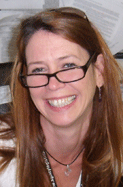
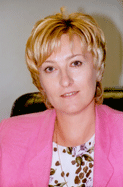
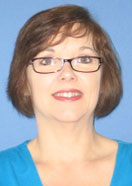
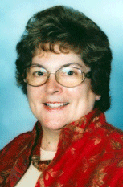

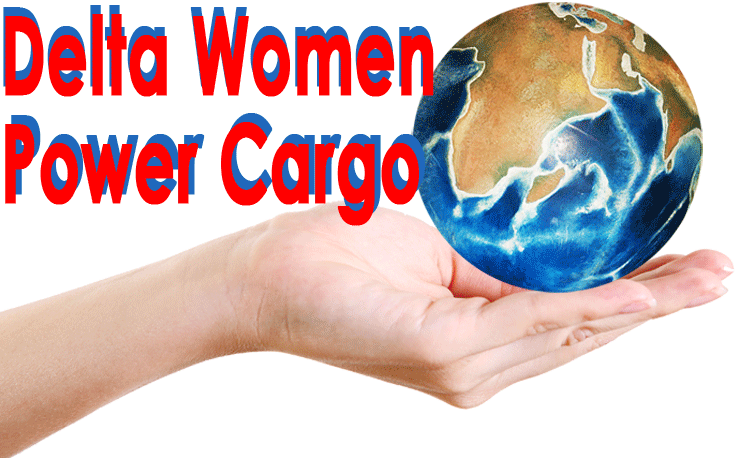

 Elizabeth:
I’ve been in air cargo for 5 years, and in the aviation industry
for 5 years and 4 months. I started out as a gate agent at a ground
handling company in Atlanta doing passenger flight for a European carrier
– I did that for about 4 months, then I was hired by the Sky Team
Cargo U.S. sales joint venture, which handled all the outbound capacity
for Korean, Air France and Delta. I worked there for a couple of years,
then I was hired by Delta Cargo to start the Cargo Flight Controller
Group. I’ve been with Delta for 3 years and 4 months.
Elizabeth:
I’ve been in air cargo for 5 years, and in the aviation industry
for 5 years and 4 months. I started out as a gate agent at a ground
handling company in Atlanta doing passenger flight for a European carrier
– I did that for about 4 months, then I was hired by the Sky Team
Cargo U.S. sales joint venture, which handled all the outbound capacity
for Korean, Air France and Delta. I worked there for a couple of years,
then I was hired by Delta Cargo to start the Cargo Flight Controller
Group. I’ve been with Delta for 3 years and 4 months.  Marie:
I think I see it from the perspective of dealing with the
forwarder side. I do global sales calls and call a lot of forwarders.
Traditionally, I spend a lot of my time with men, but I don’t
think about it or notice it – I grew up with 9 boy cousins! When
I sit at a table, I think about the business I’m doing and I think
about things we’re learning and sharing with each other.
Marie:
I think I see it from the perspective of dealing with the
forwarder side. I do global sales calls and call a lot of forwarders.
Traditionally, I spend a lot of my time with men, but I don’t
think about it or notice it – I grew up with 9 boy cousins! When
I sit at a table, I think about the business I’m doing and I think
about things we’re learning and sharing with each other.  Rachel:
We recently started a safety representative program. Instead of our
frontline agents giving all the information to station leaders, we have
developed a team of safety representatives at every station, who can
provide information about safety policy, the culture of safety, how
to improve safety, and what tools are necessary to promote safety.
Rachel:
We recently started a safety representative program. Instead of our
frontline agents giving all the information to station leaders, we have
developed a team of safety representatives at every station, who can
provide information about safety policy, the culture of safety, how
to improve safety, and what tools are necessary to promote safety. 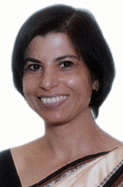
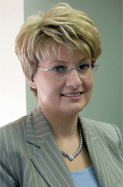
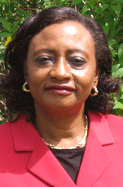
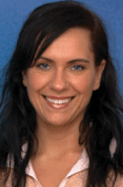
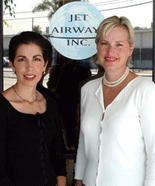
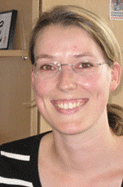
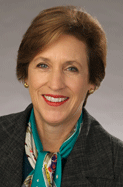

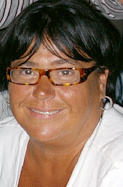
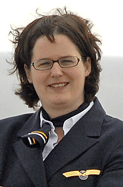
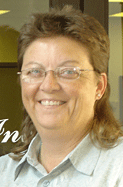
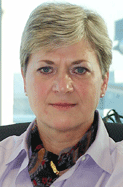
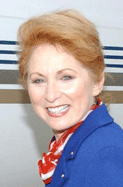
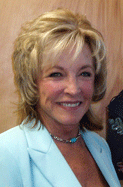
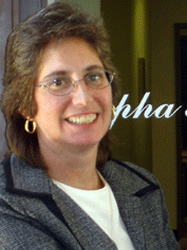
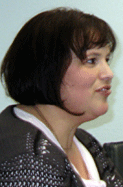
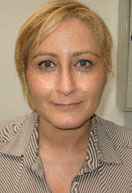
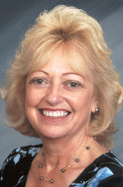

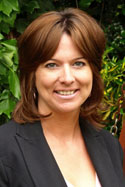
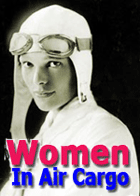
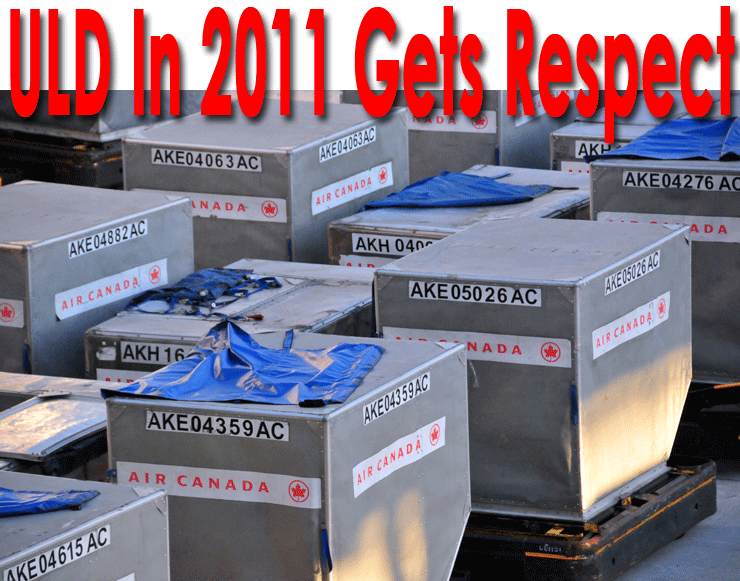

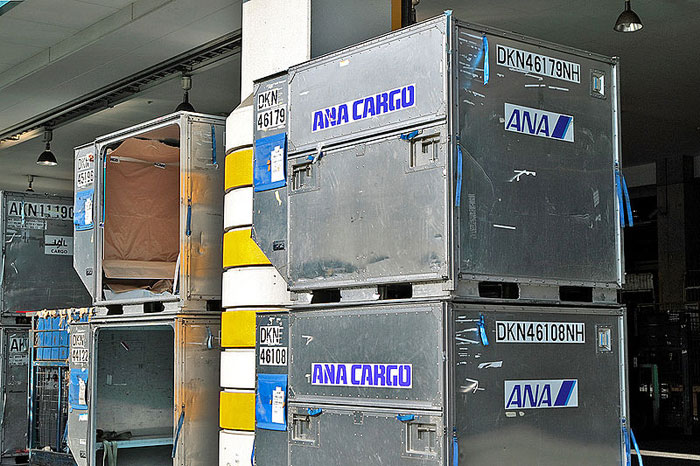 Passion
for ULDs was nurtured following the presentations, as a guest panel
was formed to stimulate debate and then the attendees broke out into
brainstorming action groups, resulting in new ideas and positive actions
for the IULDUG Executive Committee to take away.
Passion
for ULDs was nurtured following the presentations, as a guest panel
was formed to stimulate debate and then the attendees broke out into
brainstorming action groups, resulting in new ideas and positive actions
for the IULDUG Executive Committee to take away.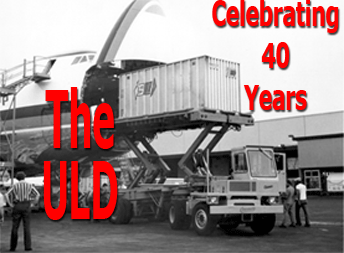 Bob
Rogers tells Flying Typers:
Bob
Rogers tells Flying Typers:
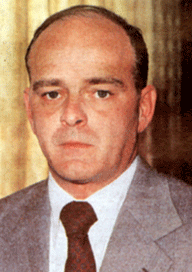 RE:
RE:

